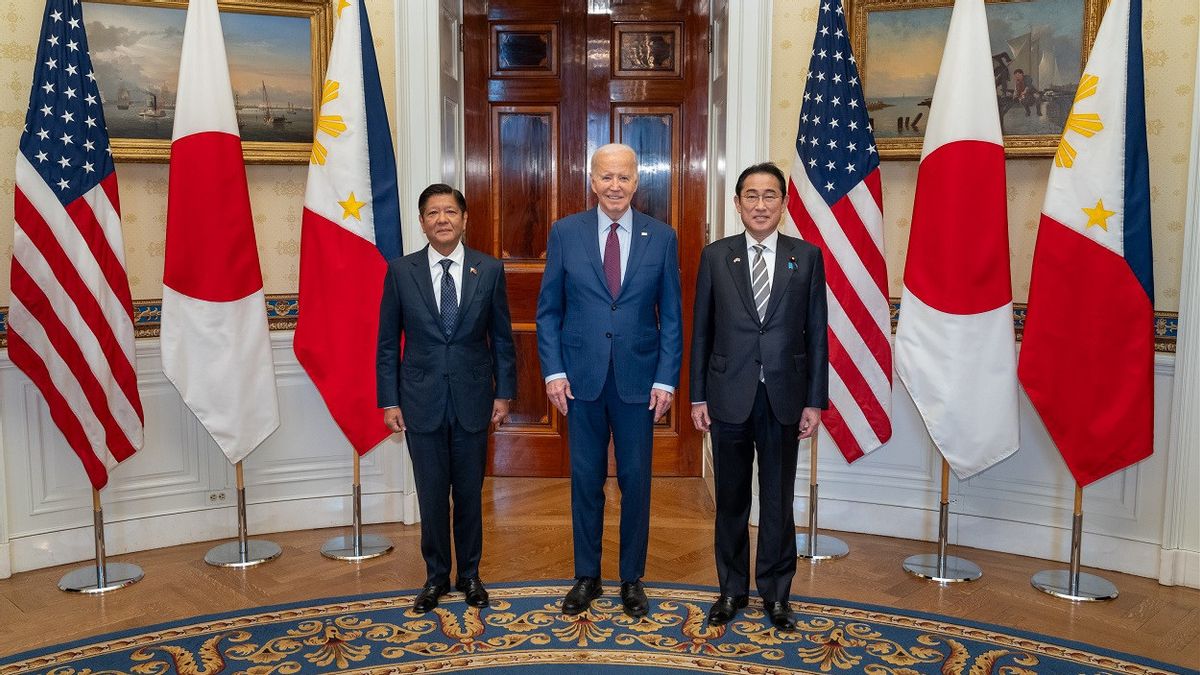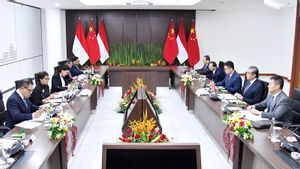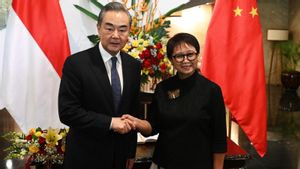JAKARTA - The Philippines' decision to strengthen its ties with Japan and the United States in a recent meeting was a sovereign choice, the Philippine Foreign Ministry said Thursday, responding to China's comments against the trilateral meeting.
United States President Joe Biden hosted Philippine President Ferdinand Marcos Jr. and Japanese Prime Minister Fumio Kishida in Washington last week, where the three leaders jointly expressed their "serious concern" over China's actions in the South China Sea.
The Philippine Foreign Ministry said this trilateral grouping would encourage peace and economic growth in the Indo-Pacific and should not be considered a threat.
On the other hand, China's "excessive maritime claims and aggressive behavior" have undermined peace and stability in the region, the ministry said.
"The source of tension in our area is already known to everyone. China must reflect on its own actions in the South China Sea," the ministry said.
Last week, Chinese Foreign Ministry spokesman Mao Ning said his party was against "the formation of an exclusive circle in the region" and "any action that triggers and increases tension".
Mao also accused the US of sticking to the "Cold War mentality" that threatens other countries by joining regional allies.
"Unreasonable reference regarding the Cold War makes the situation sensational and mischaracterizes the peaceful goal of trilateral cooperation," Manila said in response.
The Chinese Embassy in Manila did not immediately respond to a request for comment.
It is known that relations between Manila and Beijing have deteriorated over the past year in line with maritime disputes on atoll islands and disputed shallow water in the South China Sea, as well as fierce disputes between officials of the two countries.
SEE ALSO:
China claims almost the entire South China Sea, which is an annual ship trade route worth more than $3 trillion. Its territorial claims overlap with the waters claimed by the Philippines, Vietnam, Indonesia, Malaysia and Brunei.
In 2016, the Permanent Court of Arbitration in The Hague, the Netherlands said China's claim had no legal basis, but the decision was rejected by Beijing.
The English, Chinese, Japanese, Arabic, and French versions are automatically generated by the AI. So there may still be inaccuracies in translating, please always see Indonesian as our main language. (system supported by DigitalSiber.id)


















